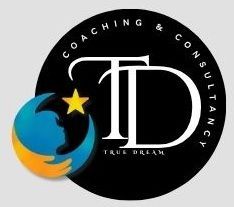“Could a Missing Fat Be the Reason They Struggle to Speak, Focus, or Feel Calm?”
"Your child has so much inside them — thoughts, ideas, emotions — but sometimes they can’t express them. Words get stuck. Focus slips. Emotions boil over. What if the issue isn’t behavioral... but biochemical?"
"OMEGA-3"?
More specifically: what if your child’s brain is starving for the right kind of fat?
Children with autism, ADHD, or sensory integration disorders often have low levels of omega-3 fatty acids, especially DHA (docosahexaenoic acid) and EPA (eicosapentaenoic acid). These fats are not made efficiently by the body — they must be consumed through food or supplements.

Unlocking the brain's hidden Language: The silent power of omega-3s
Have you ever wondered what silently fuels the brilliance of the human mind or the clarity of our vision? Beneath the surface of conscious thought and behind the delicate structure of our eyes lies a biochemical symphony—one orchestrated by two critical omega-3 fatty acids: DHA (docosahexaenoic acid) and EPA (eicosapentaenoic acid).
Let’s begin with DHA, often referred to as the architect of the brain. It makes up a staggering portion of the gray matter, the very region responsible for processing information, making decisions, and interpreting sensory input. In the retina, DHA is equally vital, ensuring sharp, accurate vision. Scientifically, DHA contributes to:
- Neuron membrane fluidity, which affects how efficiently neurons communicate.
- Synaptic function, enabling the seamless transmission of electrical impulses.
- Neural signaling, the foundational language of the nervous system.
Without adequate DHA, this neural network becomes compromised—like symphony played on detuned instruments.
Now enter EPA, the brain’s quiet regulator. While it may not be as structurally dominant as DHA, its functional role is profound. EPA acts as a mediator of inflammation in the brain, working diligently to keep the internal environment stable and resilient. This fatty acid also influences key neurotransmitters—serotonin and dopamine—which are responsible for mood, motivation, behavior, and focus.
When DHA and EPA levels fall short, the ripple effects on brain and behavior are not just noticeable—they can be life-altering:
- Delayed speech and language acquisition – due to impaired synaptic development.
- Attention deficits or hyperactivity – linked to imbalanced neurotransmitter signaling.
- Emotional dysregulation or anxiety – as serotonin pathways become less efficient.
- Difficulty in visual tracking or motor coordination – affected by suboptimal neural connectivity.
- Heightened sensory sensitivity – resulting from an overactive or inflamed neural response system.
In children especially, these deficiencies can mirror symptoms often misattributed to other neurological or developmental disorders. Research shows that omega-3 supplementation has led to measurable improvements in cognitive performance, behavior, and emotional resilience across various populations.

"So why does this matter?"
Because knowledge is power—and when you understand the science behind the brain's nutritional needs, you can nourish not just the body, but the mind and spirit as well.
“The brain is wider than the sky.” — Emily Dickinson
And with the right nutrients, its potential becomes infinite.

What Nurtures the Mind:
To support the brain’s complex architecture and calm the fire of hidden neuroinflammation, science points us toward two powerful allies: DHA and EPA. These essential fatty acids—found abundantly in cold-water fish like salmon, sardines, and mackerel, or in molecularly distilled fish oil supplements—are not just nutrients; they are critical messengers of balance within the nervous system.
When introduced in sufficient amounts, they help:
- Soothe inflammatory responses in the brain, promoting a more stable neural environment.
- Enhance synaptic transmission, allowing brain cells to communicate with greater speed and precision.
- Regulate cognitive, emotional, and behavioral functions, offering support in areas where modern challenges often arise—attention, mood, and impulse control.
Multiple clinical trials have illuminated the potential of omega-3s in childhood neurodevelopmental conditions. For example:
- In children with ADHD (Attention-Deficit/Hyperactivity Disorder), omega-3 supplementation has been linked to improved attention spans, reduced impulsivity, and better emotional regulation.
- In those with ASD (Autism Spectrum Disorder), emerging evidence suggests that omega-3s may support language acquisition, increase social engagement, and reduce anxiety, offering a gentle yet profound intervention rooted in biology.
These findings reflect a larger truth: that nutritional neuroscience is not just theoretical—it’s a rapidly evolving field that is changing how we understand the developing brain.


